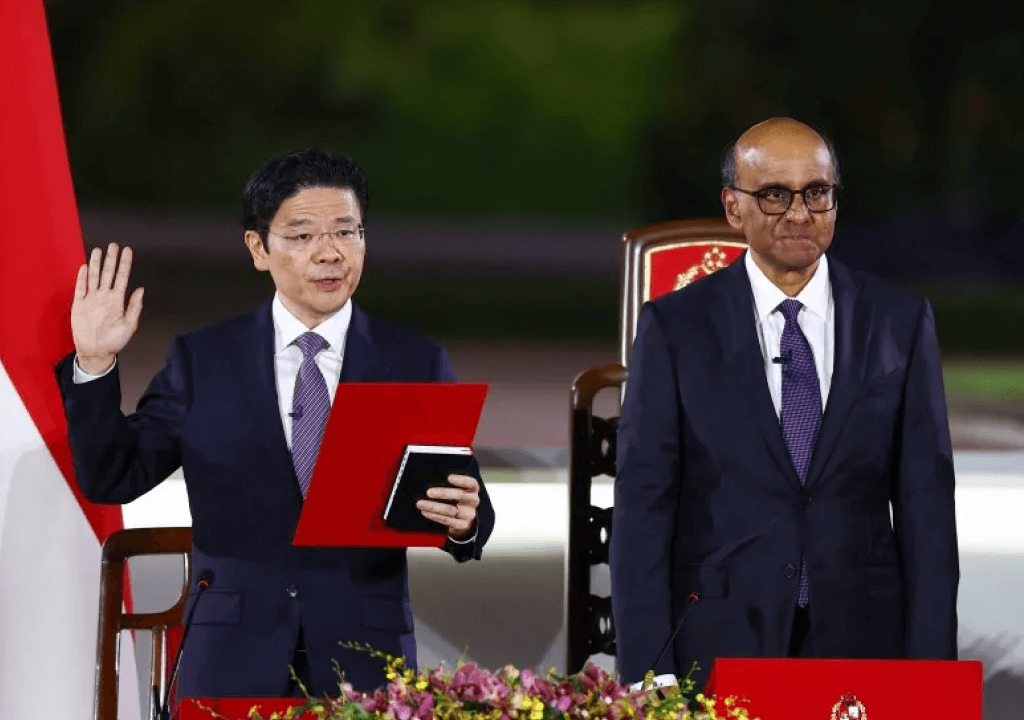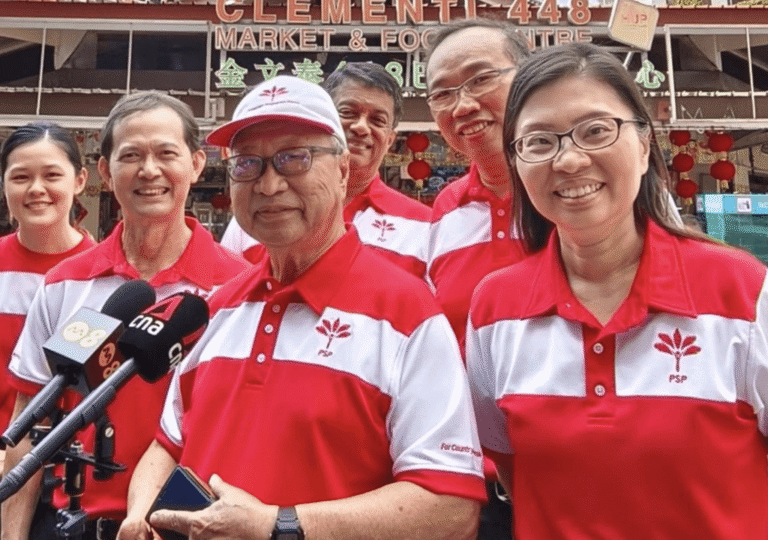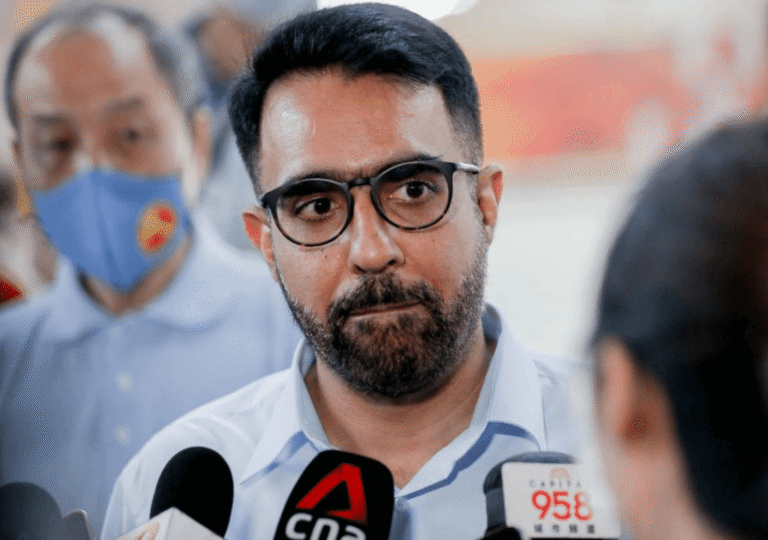In 2024, Singaporean politics was shaped by a series of pivotal moments. A once-in-a-generation shift in leadership brought a new prime minister, while the ruling People’s Action Party (PAP) underwent substantial reforms under fresh leadership. As next year’s general election approached, political campaigns began to take shape. The country also faced the verdicts of high-profile scandals, which tarnished its reputation. Amidst all this, prominent foreign leaders, including India’s formidable Prime Minister Narendra Modi, visited, adding Singapore to global geopolitical discussions.
In May, Lawrence Wong was sworn in as Singapore’s prime minister, marking only the third leadership transition since the country gained independence in 1965. A former government economist, Wong succeeded Lee Hsien Loong, who stepped down after two decades in office. Lee’s resignation was historic, as it was the first time since independence that no member of the Lee family held the office or was in line to do so. Lee continues to serve in Wong’s cabinet as senior minister.
On May 13, Wong unveiled his first Cabinet, with key portfolios largely unchanged, except for the appointment of Minister for Trade and Industry Gan Kim Yong as deputy prime minister. Together with Deputy Prime Minister Heng Swee Keat, DPM Gan is expected to provide stability during the initial transition and mentor younger office-holders, according to Wong.
A more substantial Cabinet reshuffle is anticipated after the general election, as PM Wong has indicated plans to rotate younger 4G ministers into new portfolios to broaden their experience, assuming the PAP is re-elected. While the two deputy prime ministers are seasoned leaders, it remains unclear who PM Wong views as his key 4G lieutenants. However, recent internal PAP appointments offer some insight: Education Minister Chan Chun Sing and National Development Minister Desmond Lee retained their positions as assistant secretaries-general.
In his first National Day Rally address, Wong announced a reset of policies, including the introduction of an unemployment payment scheme and an extension of state-sponsored parental leave by 10 weeks. Political observers previously suggested that the unemployment payout signaled a shift toward welfarism.
Lawrence Wong is actively campaigning for next year’s general election, scheduled for November. He has taken several steps to boost the popularity of his party, the People’s Action Party (PAP), which has been in power since Singapore’s founding, while also enhancing his own image by leveraging modern tools and methods. Although the ruling party faces challenges from the opposition, it understands the risks and is positioning itself for a refresh ahead of its 70th anniversary. On December 4, Lawrence Wong was elected secretary-general of the PAP by the party’s top leadership. Additionally, Mr. Chan was promoted from vice-chairman to chairman of the headquarters executive committee, a position formerly held by Prime Minister Wong.
In 2024, high-profile criminal cases involving former transport minister S. Iswaran and Leader of the Opposition Pritam Singh captivated the attention of Singaporeans. Iswaran, 62, pleaded guilty to five charges on what was supposed to be the first day of his trial, avoiding what many had expected to be a prolonged legal battle over corruption charges. In October, the court sentenced him to 12 months in jail for four counts of accepting valuable items as a public servant and one count of obstructing justice. Following this, Prime Minister Wong reaffirmed the government’s zero-tolerance policy toward corruption. He emphasized that, despite the personal difficulty in acting against a colleague and friend, it was the government’s responsibility to maintain Singapore’s clean and corruption-free system.
Just weeks later, Singh, 48, faced two charges of perjury related to his testimony before a parliamentary committee. Over 13 court days spanning five weeks, the trial examined Singh’s statements in December 2021 to the Committee of Privileges, which had been convened to investigate a lie told by former WP MP Raeesah Khan. The trial saw testimony from Khan, former WP members, and former WP secretary-general Low Thia Khiang, with tense exchanges between the prosecution and defense. The case has drawn attention to the opposition, particularly the inner workings of the Workers’ Party, as Singh is the Republic’s first Leader of the Opposition.
Singapore continues to maintain a conflicting stance on the Israel-Palestine conflict by not recognizing Palestine as a state while advocating for its cause and supporting a two-state solution. In 2024, it repeatedly called for an immediate ceasefire and the safe, unconditional release of all remaining hostages. In August, Foreign Minister Vivian Balakrishnan emphasized that Singapore must be prepared to call out violations of international law, breaches of the UN Charter, or actions that threaten fundamental principles. However, in June, three women faced public order charges for allegedly organizing a pro-Palestine procession near the Istana and soliciting online attendance. Despite numerous calls from leaders for recognition, Singapore has not officially recognized Palestine.
Neither the PAP nor opposition parties are actively engaging with the ground, but potential candidates have already been spotted in several constituencies. Some level of horse-trading between opposition parties appears to have begun to avoid three-cornered contests, which have historically been seen as detrimental by splitting the opposition vote. Red Dot United (RDU) chief Ravi Philemon said that his party began walkabouts in Nee Soon GRC in August, after learning that the Progress Singapore Party was no longer active there. RDU is part of a four-party coalition with the National Solidarity Party, Singapore People’s Party, and the Singapore United Party. In 2020, most opposition parties had to broker bilateral pacts after a proposed coalition of seven opposition parties failed to materialize.
The 2025 general election will be crucial for Singapore as it will test the latest generation of PAP leadership and highlight the growing strength of the opposition, shaping the future of Singapore’s politics. The shift toward a welfare state is expected in the coming years, with the opposition playing an important role in this evolving landscape. At the same time, the new U.S. administration under Trump may demand more pro-U.S. policies from the Singapore government, potentially destabilizing the country’s geopolitical balance.







